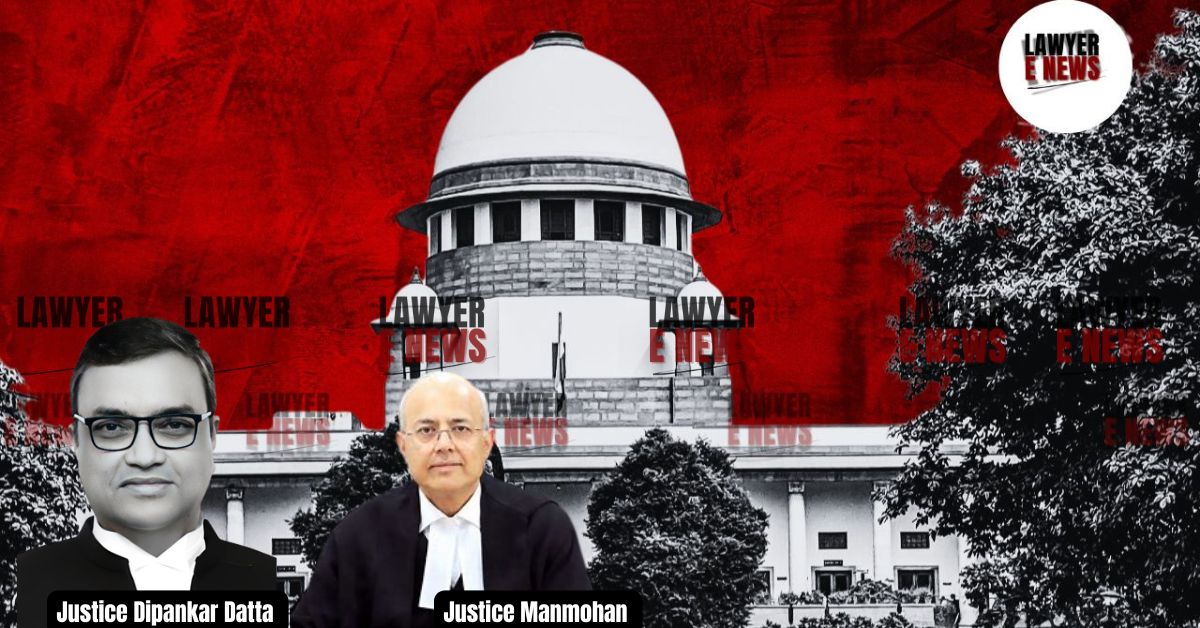-
by Admin
16 February 2026 1:47 PM



Appointment Contrary to Statutory Prescription Is Void - On April 2, 2025, the Supreme Court of India decisively holding that mere possession of a higher qualification cannot replace the exact qualification prescribed by statutory recruitment rules. The case revolved around the eligibility of candidates holding a Syrang’s licence, a higher maritime certification, for the post of Boat Lascar, which mandatorily required a current Lascar’s licence. The Court dismissed the appellant’s plea, affirming that “an appointment made contrary to the statute/statutory rule would be void,” thereby upholding the Kerala Administrative Tribunal and Kerala High Court orders against the appellant.
“The statutory qualification was clear, precise and unalterable” — Supreme Court emphasizes mandatory nature of Lascar’s Licence
The controversy originated from an advertisement dated October 17, 2012, issued by the Kerala Public Service Commission (KPSC) for filling 12 vacancies of Boat Lascar through direct recruitment. The prescribed qualification under the advertisement was twofold — literacy in Malayalam, Tamil, or Kannada, and possession of a current Lascar’s licence. However, Jomon K.K., holding a Syrang’s licence (a superior certificate for higher posts under the same service), applied and topped the merit list. The Director of Ports had issued a letter stating that “the Syrang, Master and Driver Certificate issued under the KIV Rules, 2010 is a certificate superior to Lascar Certificate…such persons are eligible for the job of Lascar also.” Relying on this, KPSC proceeded with his selection.
Subsequently, unsuccessful candidates challenged this process before the Kerala
Administrative Tribunal, asserting that inclusion of candidates without a current
Lascar’s licence was contrary to the advertisement and the Kerala State Water Transport Subordinate Service Rules, 1975. The Tribunal allowed the application and ordered recasting of the ranked list, which led to the cancellation of Jomon’s appointment.
“Classification of eligible candidates is not arbitrary; only those possessing current Lascar’s licence could apply” — Supreme Court affirms rule-based selection
The appellant argued that his higher qualification (Syrang’s licence) rendered him eligible, invoking judgments like Parvaiz Ahmed Parry v. State of J&K and Chandra Shekhar Singh v. State of Jharkhand, where higher qualifications were deemed acceptable. However, the Supreme Court firmly rejected this argument. The Court stressed that “Rule 6 of the Special Rules leaves no room for ambiguity — no person shall be eligible unless he possesses the qualifications prescribed.” The Court further remarked, “Possession of a current Lascar’s licence is an essential qualification, and apart from those having it, none else is eligible.”
Addressing the issue of equality, the Court observed that opening the recruitment to Syrang licence holders would violate Article 16 of the
Constitution, depriving genuine Lascar certificate holders of fair competition. The Bench noted, “It could also be a distinct possibility where all the vacant posts of Lascar are filled up by persons having Syrang’s licence… Those aspirants holding only a Lascar’s licence might never secure any public employment.”
“Sympathy is misplaced where appointment is illegal” — Supreme Court declines to invoke Article 142
The appellant’s plea for relief under Article 142 was also rejected. The Court observed, “If an appointment is illegal, it is non-est in the eye of law… Sympathy should not be misplaced.” While acknowledging that higher qualifications may sometimes be advantageous, the Court firmly held, “Each case has to be decided on its own peculiar facts, and there can be no universal rule that every time a higher qualified candidate is to be preferred.” The Court concluded that the appellant’s appointment was legally invalid as it circumvented mandatory statutory prescriptions, and such irregularity could not be cured under Article 142.
Dismissing the appeal, the Court remarked, “We are of the considered opinion that the appellant having gained entry through a process which was not legal and valid, this is not a fit and proper case where this Court ought, in exercise of its power under Article 142 of the Constitution, to ignore the illegality and invalidity to come to his rescue.”
Date of Decision: April 2, 2025
